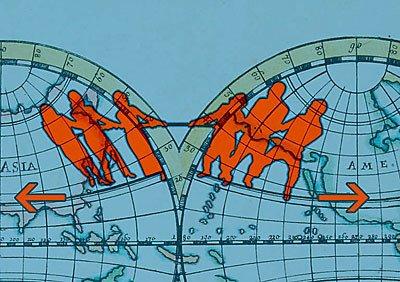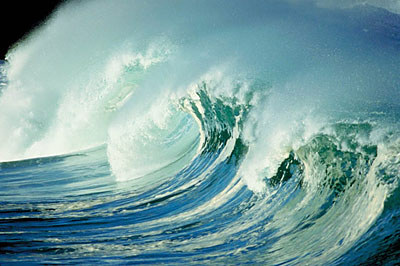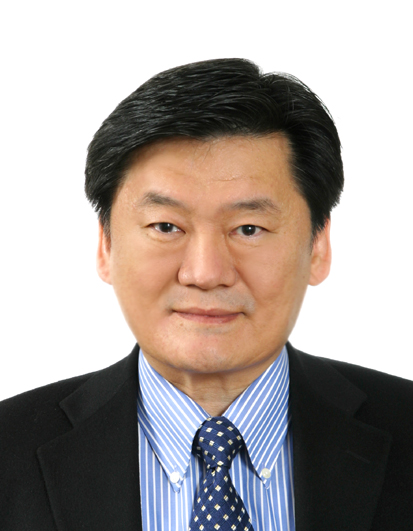Newsletter from the Pacific Economic Cooperation Council (PECC)
- UPCOMING: PECC Singapore Conference 2014 | Singapore | February 9-11, 2014
- PAST: APEC 2014 Symposium: Opportunities and Priorities | Beijing, China | December 9, 2013
- PAST: Fisheries Trade Facilitation and Sustainable Development: The Post-Bali Agenda | Bali, Indonesia | December 5, 2013
- PAST: 28th Pacific Economic Community Seminar: “TPP and RCEP: Emerging Dual-Track Pathways towards FTAAP” | Taipei, Chinese Taipei | November 13-14, 2013
- PAST: Energy Transition Seminar 1: Making the most out of available resources | Victoria, BC, Canada | November 7-8, 2013
- MEMBER COMMITTEES: KOPEC: Dr. Sangkyom Kim Appointed Deputy Director, Directorate for Financial and Enterprise Affairs, OECD
- PUBLICATIONS: NZPECC: Global Value Chains Report
UPCOMING EVENTS
PECC Singapore Conference: New Priorities of Regional Economic Integration - Mandate for APEC | Singapore | February 10-11, 2014
 The regional and global economies are undergoing a structural transformation, partially a response to the upheaval caused by the Global Financial Crisis but also due to rapidly evolving changes in regional economies. Policy-makers are experimenting with various instruments to manage these changes. The regional and global economies are undergoing a structural transformation, partially a response to the upheaval caused by the Global Financial Crisis but also due to rapidly evolving changes in regional economies. Policy-makers are experimenting with various instruments to manage these changes.
The 2014 PECC Singapore conference, co-organized by the Singapore National Committee for Pacific Economic Cooperation (SINCPEC) and the China National Committee for Pacific Economic Cooperation (CNCPEC), aims to provide a venue for stakeholders from different parts of the region to share their views and expertise on various ways in which APEC can play a role in managing the change. The Conference will consist of four sessions. The panels for each session will address the issue from a different set of perspectives. For more information, please contact: sppyxy@nus.edu.sg.
Tentative program agenda
PAST EVENTS
APEC 2014 Symposium: Opportunities and Priorities | Beijing, China | December 9, 2013
 The APEC 2014 Symposium was held at the China National Convention Center in Beijing, in conjunction with the APEC Informal Senior Officials Meeting (ISOM) which followed on the next day. Over 200 participants, including academic experts, APEC Senior Officials, and representatives from the business community and government departments attended the Symposium organized by the China National Committee for Pacific Economic Cooperation (CNCPEC) and chaired by Ambassador Tang Guoqiang, Chair of CNCPEC. More... The APEC 2014 Symposium was held at the China National Convention Center in Beijing, in conjunction with the APEC Informal Senior Officials Meeting (ISOM) which followed on the next day. Over 200 participants, including academic experts, APEC Senior Officials, and representatives from the business community and government departments attended the Symposium organized by the China National Committee for Pacific Economic Cooperation (CNCPEC) and chaired by Ambassador Tang Guoqiang, Chair of CNCPEC. More...
Fisheries Trade Facilitation and Sustainable Development: The Post-Bali Agenda |Bali, Indonesia | December 5, 2013
 Fishery products are among the most internationally traded commodities, and developing economies account for the majority of world fish trade. The Asia-Pacific region alone accounts for more than two-thirds of the world’s capture fisheries and aquaculture production, and consumes 70% of the world’s fish products. Given its potential to promote development, attention is focused on how fisheries trade can be facilitated while ensuring the sustainability of the fisheries resource base. The 9th WTO Ministerial Meeting in Bali was seen as an opportunity to take stock of progress – or the lack of it – in addressing these concerns, and to help shape the post-Bali agenda and priorities for the fisheries sector in international trade. Fishery products are among the most internationally traded commodities, and developing economies account for the majority of world fish trade. The Asia-Pacific region alone accounts for more than two-thirds of the world’s capture fisheries and aquaculture production, and consumes 70% of the world’s fish products. Given its potential to promote development, attention is focused on how fisheries trade can be facilitated while ensuring the sustainability of the fisheries resource base. The 9th WTO Ministerial Meeting in Bali was seen as an opportunity to take stock of progress – or the lack of it – in addressing these concerns, and to help shape the post-Bali agenda and priorities for the fisheries sector in international trade.
The Bali Trade and Development Symposium took place in Bali during December 3-5, during the 9th WTO Ministerial Conference. The aim of the event was to provide a forum for discussion among governmental and non-governmental stakeholders on issues at the interface of trade and sustainable development, with a view to identifying policy options to address key challenges facing the multilateral trade system.
A session on December 5th, co-organized by the Center for the Advancement of Trade Integration and Facilitation (CATIF) and PECC, addressed three main topics:
- The state of play in world capture fisheries
- The efforts underway to facilitate trade in fisheries products through capacity building and technical assistance to increase understanding and implementation of sanitary and phytosanitary regulations in different markets
- The role of regional cooperation to manage fisheries capture
28th Pacific Economic Community Seminar: “TPP and RCEP: Emerging Dual-Track Pathways towards FTAAP” | Taipei, Chinese Taipei | November 13-14, 2013

The most recent crisis had serious impacts on the world economy through the channel of trade. We believe that economic integration with freer trade would help create a healthier business environment by eliminating protectionism in many possible ways. After all, REI is able to provide the much needed recovery momentum. However, there still exist many political and economic challenges limiting the progress of REI.
At bad economic times, protectionism in many forms are revived, and transaction costs hindering the development of healthy business environment are raised. Various regional economic integration (REI) efforts are ongoing with the aims of reducing or eliminating unnecessary economic barriers in the form of Free Trade Area of the Asia-Pacific (FTAAP), and the related frameworks in progress such as the Trans-Pacific Partnership (TPP) and the Regional Comprehensive Economic Partnership (RCEP). Are these two tracks in competition or are they complementary? How can the potential gains from TPP and RCEP be maximized? What effect do these two tracks have on non-members as well as the participating members? International experts from Australia, Chile, China, Indonesia, Japan, Korea, New Zealand, Singapore, and Thailand shared their views and exchanged ideas with Chinese Taipei counterparts on these questions. More...
Click for program agenda and select number of presentations
Energy Transition Seminar 1: Making the most out of available resources | Victoria, BC, Canada | November 7-8, 2013
 Taking into consideration global needs for new sources of energy to meet the growing industrial and household demands in the midst of rising energy costs and diminishing fossil fuels, it is one of top priorities for Asia-Pacific economies to explore the most efficient ways of ensuring smooth transitions from fossil fuels to non-traditional and renewable energies. Taking into consideration global needs for new sources of energy to meet the growing industrial and household demands in the midst of rising energy costs and diminishing fossil fuels, it is one of top priorities for Asia-Pacific economies to explore the most efficient ways of ensuring smooth transitions from fossil fuels to non-traditional and renewable energies.
The first seminar held in Victoria, BC, Canada on November 7-8, 2013, covered the commercial development and viability of new energy sources and technology. The participating experts discussed how these new sources of energy are likely to provide for longer-term solutions to mitigate the adverse effects of climate change and the increase in price of depleting fossil fuels. The seminar also addressed the prospects of renewable energies in respect to the rapid development of non-traditional energy fuels such as shale gas and oil that are being touted as improved options in comparison to the expensive and environmentally unsound conventional fossil fuels. The contents of seminar included:
- discussions and recommendations in favor of commercial development of renewable and non-traditional energies;
- identification of various possibilities that renewable energies could offer in meeting the two important challenges: a) predictability, and b) storage or linkage to the existing power grids; and
- discussions on the need to bring new types of energies to market competitiveness by focusing on: a) advancing the technical knowledge from the drawing board to the market, and b) enhancing the capability of industrial enterprises to reform their business models with the aims to facilitate energy transition in the PECC economies.
Download the program agenda (174KB, pdf)
Download the executive summary (219KB, pdf)
Download the individual powerpoint presentations (in pdf format)
MEMBER UPDATES
KOPEC: Dr. Sangkyom Kim, Vice-Chair of KOPEC, Appointed Deputy Director, Directorate for Financial and Enterprise Affairs, OECD
 KOPEC Vice-Chair and Vice President of the Korea Institute for International Economic Policy (KIEP), Dr. Sangkyom Kim has been appointed as Deputy Director in the Directorate for Financial and Enterprise Affairs at the Organisation for Economic Co-operation and Development (OECD). The Directorate for Financial and Enterprise Affairs deals with investment, corporate activities, anti-corruption, competition, corporate governance and other related issues. He will start his three-year term at the headquarters in Paris, France, commencing on February 1st, 2014. KOPEC Vice-Chair and Vice President of the Korea Institute for International Economic Policy (KIEP), Dr. Sangkyom Kim has been appointed as Deputy Director in the Directorate for Financial and Enterprise Affairs at the Organisation for Economic Co-operation and Development (OECD). The Directorate for Financial and Enterprise Affairs deals with investment, corporate activities, anti-corruption, competition, corporate governance and other related issues. He will start his three-year term at the headquarters in Paris, France, commencing on February 1st, 2014.
Dr. Kim has received his Ph.D. in Economics from the University of Pennsylvania. The successor for his position as the Vice-Chair of KOPEC has yet to be named.
PUBLICATIONS
NZPECC: Global Value Chains Report
 Against the background of increasing international focus on global value chains (GVCs), the Board of the New Zealand Pacific Economic Cooperation Council (NZPECC) commissioned research from Coriolis into GVCs with respect to New Zealand’s dairy sector. Two representative products were selected – Infant Formula and UHT Milk. Against the background of increasing international focus on global value chains (GVCs), the Board of the New Zealand Pacific Economic Cooperation Council (NZPECC) commissioned research from Coriolis into GVCs with respect to New Zealand’s dairy sector. Two representative products were selected – Infant Formula and UHT Milk.
The GVC analysis provides new information and identifies some implications for policy but its major contribution is to draw together and sharpen the focus around a number of already known issues.
The report raises issues, but deliberately does not propose solutions. It is designed as a contribution to discussion and reflection about future directions for New Zealand’s exporting sectors. A number of issues, such as underpinning organisational structures and economic policy settings, were out of scope for the research.
The full report is available for download here. The report is copyright to NZPECC and the usual provisions about reproduction apply. Any queries regarding this report should be directed to NZPECC Board member Brian Lynch, brianlynch344@gmail.com.
More...
|
APEC First Senior Officials Meeting (SOM1) and related meetings will be held in Ningbo, China during February 15-28, 2014. The online registration will be open from 18 January to 8 February 2014.
APEC China 2014
PECC in the News
The Star Online
29 December 2013
Suara Karya
27 December 2013
Canada-Asia Agenda
12 December 2013
DISCUSSION FORUM
Enough TPP Paranoia, Already
by Hugh Stephens
Vice Chair, CANCPEC | Fellow of the Canadian Defence and Foreign Affairs Institute | Executive-in-residence at the Asia Pacific Foundation of Canada
The failure of Trans-Pacific Partnership (TPP) trade ministers to conclude the TPP agreement this past December in Singapore no doubt pleased many critics of the agreement.
Criticisms have been widespread — ranging from the ‘secrecy’ of the negotiations, to possible limits on national sovereignty arising from required changes to Canadian law, to wild accusations that it will undermine Internet freedom for Canadians. The Council of Canadians, never a friend of trade liberalization, has had particularly harsh words for the TPP. According to one of the many anti-TPP posts by the Council, the TPP “could lead to the dismantling of Canada’s important supply management regimes for dairy, poultry and egg production; the race-to-the-bottom potential in a proposed regulatory harmonization chapter; extreme intellectual-property protections for big drug companies that would limit access to life-saving medicines; investor-state provisions that would allow companies to sue governments over rules to protect the environment; government procurement restrictions and copyright rules that undermine Internet freedom”.
Heavens. Could it get worse?
More...
JOB VACANCY
The APEC Policy Support Unit (PSU) is now recruiting. They are looking for a highly motivated and analytical Researcher with superior quantitative skills to join the team. The job description and requirements for this position can be found at APEC website.
Applicants must be a citizen of one of the 21 APEC economies. Your application must include a cover letter and a resume detailing your qualifications and experience. Please send your e-mail to: albh@apec.org. Previous applicants need not apply.
Application closes on 14 February 2014 (GMT+8).
For more information about the Policy Support Unit, please go to www.apec.org/About-Us/Policy-Support-Unit.aspx
|


 The regional and global economies are undergoing a structural transformation, partially a response to the upheaval caused by the Global Financial Crisis but also due to rapidly evolving changes in regional economies. Policy-makers are experimenting with various instruments to manage these changes.
The regional and global economies are undergoing a structural transformation, partially a response to the upheaval caused by the Global Financial Crisis but also due to rapidly evolving changes in regional economies. Policy-makers are experimenting with various instruments to manage these changes. The APEC 2014 Symposium was held at the China National Convention Center in Beijing, in conjunction with the APEC Informal Senior Officials Meeting (ISOM) which followed on the next day. Over 200 participants, including academic experts, APEC Senior Officials, and representatives from the business community and government departments attended the Symposium
The APEC 2014 Symposium was held at the China National Convention Center in Beijing, in conjunction with the APEC Informal Senior Officials Meeting (ISOM) which followed on the next day. Over 200 participants, including academic experts, APEC Senior Officials, and representatives from the business community and government departments attended the Symposium 




